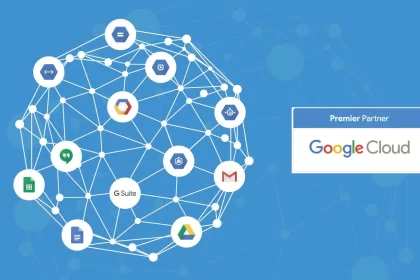In today’s rapidly evolving digital landscape, technology plays a pivotal role in shaping the future of business education. This 800-word article explores the various facets of technology integration in business education and how digital innovations revolutionise how business concepts are taught and learned.
Enhancing Learning Experiences through Digital Platforms
The integration of technology in business education has immensely enhanced learning experiences. Digital platforms like Learning Management Systems (LMS), online courses, and interactive simulations have expanded the boundaries of traditional classrooms, enabling students to access a wealth of resources and learning materials anytime, anywhere. Topessaywriting and other academic writing services have turned writing assignments into a stress-free endevour. These platforms facilitate a more personalized learning experience, where students can learn at their own pace and revisit complex topics as needed. Digital tools also enable educators to track student progress in real-time, providing targeted feedback and support.
Simulating Real-World Business Scenarios
One of the most significant advantages of technology in business education is the ability to simulate real-world business scenarios. Tools like virtual reality (VR) and augmented reality (AR) create immersive, interactive environments where students can practice and hone their skills. Simulations in finance, marketing, and management allow students to experience the consequences of their decisions in a risk-free setting, preparing them for the complexities and challenges of the business world. These simulations provide a practical, hands-on approach to learning, making theoretical concepts more tangible and understandable.
Fostering Collaboration and Global Connectivity
Technology has broken down geographical barriers, fostering collaboration and global connectivity in business education. Students can work on projects with peers worldwide through online collaboration tools and platforms, gaining exposure to diverse perspectives and cultures. This global connectivity is crucial in today’s interconnected business environment, where understanding cross-cultural dynamics and global markets is essential. Technology-enabled collaboration also hones communication and teamwork skills, key competencies in any business setting.
Incorporating Data Analytics and AI into Curriculum
Incorporating data analytics and artificial intelligence (AI) into business curriculums is another transformative aspect of technology in this field. As data-driven decision-making and AI become increasingly prevalent in business, students must be proficient in these areas. Business education programs are integrating courses on big data, machine learning, and predictive analytics, equipping students with the skills to analyze and interpret complex data sets and understand AI’s ethical implications and challenges in business.
Preparing Students for a Digital Future
Business education must also focus on developing digital literacy and technological proficiency in preparing students for the digital future. This involves not only teaching students how to use specific software or platforms but also fostering an understanding of digital trends, cybersecurity, and the impact of technology on business strategies and models. As technology evolves, students must be adaptable, continuously learning, and staying abreast of new technological developments.
Challenges and Opportunities in Integrating Technology
While integrating technology into business education offers numerous benefits, it also presents challenges. One major challenge is ensuring equal access to technology for all students and addressing the digital divide that can exacerbate educational inequalities. Additionally, educators must be adequately trained and supported in using these technologies effectively. Despite these challenges, integrating technology into business education presents opportunities for more engaging, relevant, and effective teaching and learning experiences.
The Role of E-learning and Online Education
E-learning and online education have become integral components of business education, offering flexibility and accessibility to a wider range of learners. Online MBA programs, specialized business courses, and MOOCs (Massive Open Online Courses) have made business education more accessible, especially for working professionals and those in remote areas. These online programs often incorporate interactive elements, peer-to-peer learning, and real-time feedback, maintaining the rigor and quality of traditional in-person programs.
Conclusion
In conclusion, the role of technology in business education is multifaceted and constantly evolving. Technology is revolutionising how business concepts are taught and learned, from enhancing learning experiences and simulating real-world scenarios to fostering global collaboration and incorporating data analytics and AI. As we continue to navigate the digital age, business education must adapt and evolve, leveraging technology to prepare students for the challenges and opportunities of the future business landscape.
Author: Mark Wooten
Mark Wooten is an esteemed article writer and educator known for his ability to make complex educational concepts accessible and engaging. His articles blend his experience in the classroom with insightful analysis, offering readers both practical advice and deeper understanding. Mark’s dedication to education shines through his writing, making him a respected voice in the field for educators and students alike.










